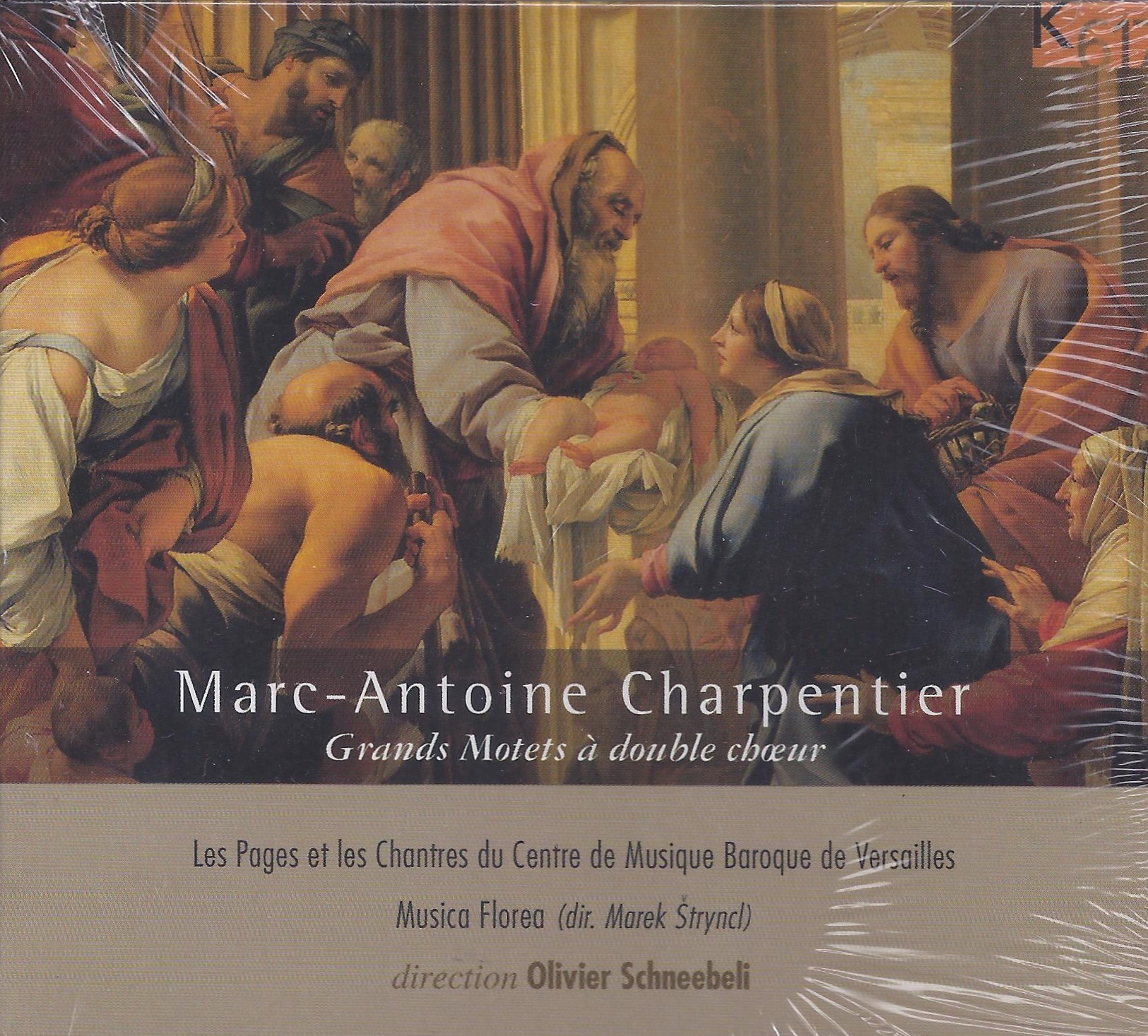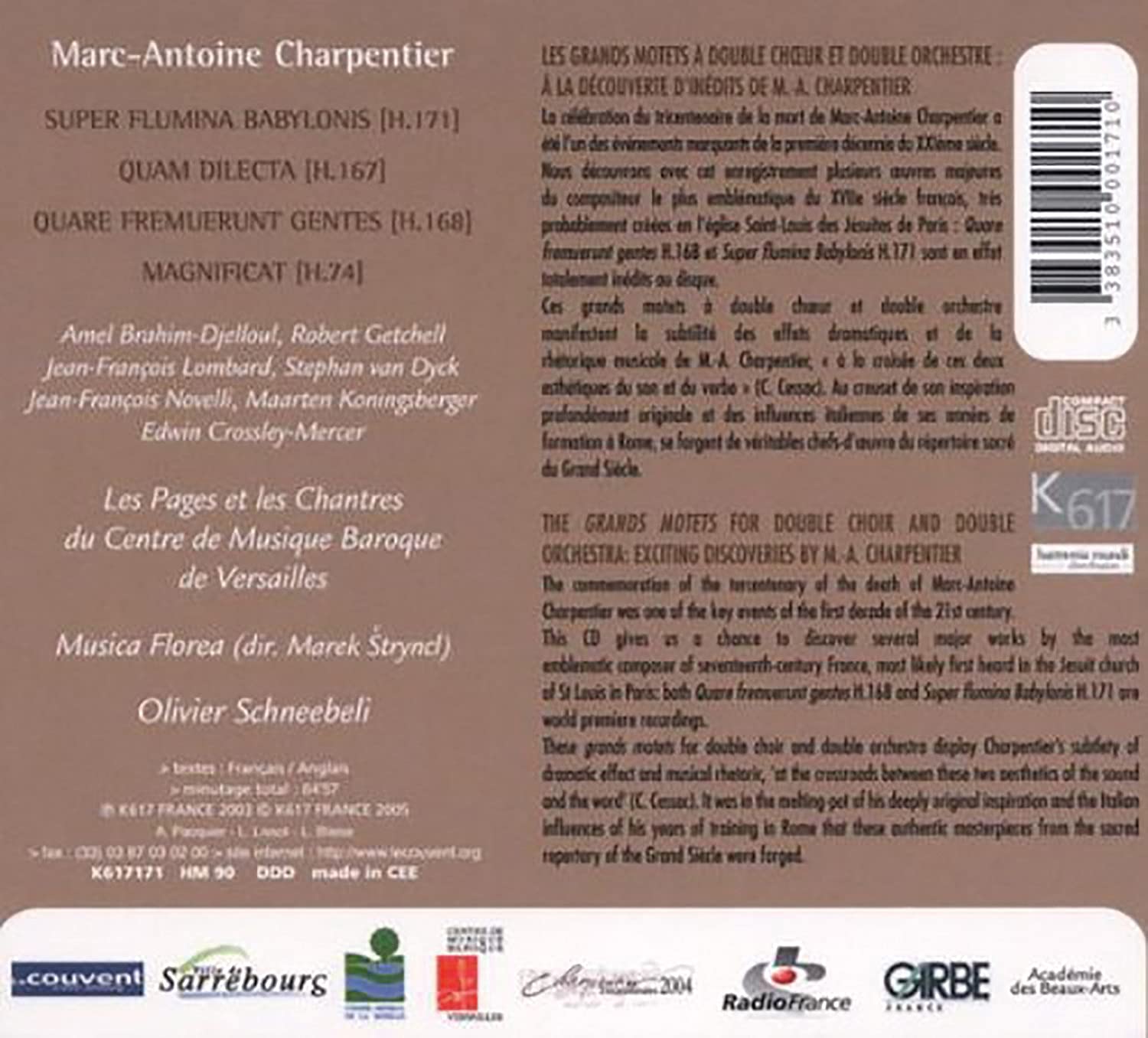
classical music distribution


(Produkt nie został jeszcze oceniony)
kompozytor
Charpentier, Marc-Antoine
tytuł
Charpentier: Grands Motets
wykonawcy
Schneebeli, Olivier;
Musica Florea;
Les Pages & Les Chantres du Centre de Musique Baroque de Versailles
Musica Florea;
Les Pages & Les Chantres du Centre de Musique Baroque de Versailles
nr katalogowy
K 617171
opis
In the 1660s Marc-Antoine Charpentier stayed in Rome. The original aim of the three-year stay was to learn the profession of painter. However, the highly talented young man soon fell under the spell of music. The churches sounded like motets with many choirs, which cleverly exploited all the acoustic possibilities of the wide halls. Sacred compositions, which in their drama almost resembled operas, were performed in secular prayer halls, the oratorios. There they had been banished by the spiritual authorities, who feared that these works had too great an affinity with the sinful theatre business. Flight, the new genre of sacred music took the name of his place of performance: The oratorio was born. Giacomo Carissimi and his great oratorical compositions particularly impressed the young man; throughout his life Charpentier revered his Roman teacher as a formative role model
Upon returning to his native France, Marc-Antoine Charpentier became a protagonist of the fusion of Italian and French styles. His magnificent double-choir motets are as much a testimony to his artistry as to the dramatic forcefulness of his music. It impressed even Louis XIV, although Charpentier was denied a position at the court of the Sun King, as Jean-Baptiste Lully ruled there as the absolute ruler of music and successfully prevented the employment of musicians of equal rank.
nośnik
CD
gatunek
Muzyka klasyczna
producent
K617
data wydania
07-01-2015
EAN / kod kreskowy
3383510001710

(Produkt nie został jeszcze oceniony)
cena 58,00 zł
lubProdukt na zamówienie
Wysyłka ustalana indywidualnie.
Darmowa wysyłka dla zamówień powyżej 300 zł!
Darmowy kurier dla zamówień powyżej 500 zł!
sprawdź koszty wysyłkiProduktu jeszcze nie zrecenzowano, chcesz być pierwszy?
Klienci, którzy kupili ten produkt, kupili również
Paz, Salam & Shalom - muzyka średniowiecza, skrzyżowanie kultur żydowskiej, arabskiej i chrześcijańskiej
AMY 033
Sierra, Roberto
Sierra, Roberto: Sinfonía No. 3 'La Salsa'; Beyond the Silence of Sorrow; Borikén; El Baile
8.559817
Pozostałe płyty tego kompozytora
różni kompozytorzy
Splendeurs de Versailles – Moulinié, Lully, Charpentier, Clérambault, Couperin …
Alpha 260
Charpentier, Marc-Antoine
Charpentier: La Descente d’Orphee aux Enfers, La Couronne de Fleurs
CPO777876-2
Charpentier, Marc-Antoine
WYCOFANE CHARPENTIER: Messe de Minuit pour Noel, Te Deum
6.110054
Pozostałe płyty tego wykonawcy
Charpentier, Marc-Antoine
Charpentier: Vepres pour Saint Louis Les Pages & les Chantres
Alpha 050
Napisz recenzję dla: Charpentier: Grands Motets
Zapytaj o dostępność produktu
Twoje zapytanie:
Odpowiemy na adres:
Produkt został dodany do koszyka

Charpentier, Marc-Antoine
Charpentier: Grands Motets
1 szt






































